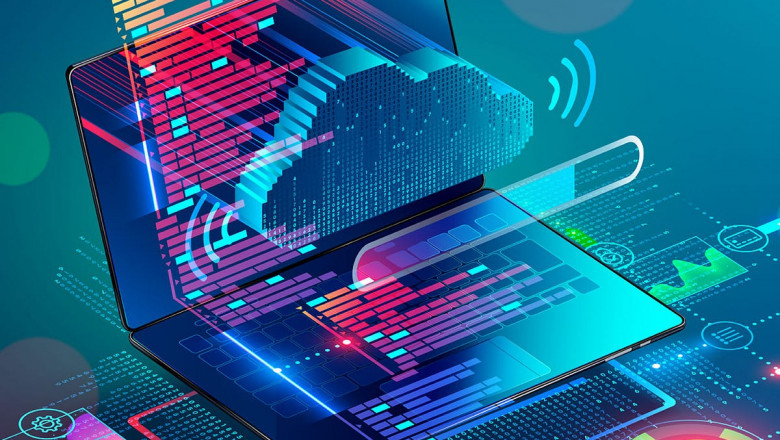views
TechQware, a leading IT solutions company, has recently released a report titled “IOT Software Development Market: Technology Overview, Global Industry Trends, Growth and Opportunity.” The study provides a detailed analysis of the IOT Software Development Market, covering key technological features, industry trends, innovation opportunities, and future developments. The report also explores the latest advancements in this technology and explains its underlying mechanisms.
Report Highlights:
How big is the IOT Software Development market?
The global IoT software market is expected to grow from $346.58 billion in 2022 to $1,625.64 billion by 2029 at a CAGR of 24.7%. The market is driven by the increasing demand for automation, the widespread use of smart devices, and the broad application of IoT across various sectors.
What is IOT Software Development?
IoT technology involves connecting physical devices (such as sensors, actuators, and appliances) to the internet to collect and exchange data, enabling remote monitoring, control, and automation through apps.
Also Read a Detailed Analysis with Insights :
https://www.techqware.com/internet-of-things-software-development
How Does IOT Software Development Work?
IoT software development involves creating software and systems that enable physical devices to connect to the internet and communicate with each other. It combines hardware, embedded systems, networking, cloud computing, and data analytics to provide real-time insights, automation, and inter-device connectivity.
Here's a breakdown of how it works:
1. Device and Sensor Selection:
- Identify the physical devices and sensors needed to collect data.
- Consider factors like power consumption, connectivity options, and data accuracy.
2. Hardware Integration:
- Integrate the chosen devices and sensors into the IoT system.
- This might involve configuring hardware, writing firmware, and ensuring secure communication protocols.
3. Data Collection and Processing:
- Collect data from the devices and sensors using appropriate protocols (e.g., MQTT, CoAP, HTTP).
- Process the raw data to extract meaningful information.
- Store the data in a suitable database or cloud storage.
4. Cloud Platform Integration:
- Choose a cloud platform (e.g., AWS IoT Core, Azure IoT Hub, Google Cloud IoT Core) to handle data storage, processing, and analysis.
- Integrate the devices and sensors with the cloud platform.
5. Data Analytics and Insights:
- Apply data analytics techniques to uncover patterns, trends, and insights from the collected data.
- Use machine learning and AI to enhance data analysis and decision-making.
6. Application Development:
- Develop user interfaces (web, mobile, or embedded) to visualize data and control devices.
- Create applications to automate tasks, trigger alerts, and provide actionable insights.
7. Security and Privacy:
- Implement robust security measures to protect data and devices from unauthorized access.
- Ensure compliance with data privacy regulations (e.g., GDPR, CCPA).
8. Testing and Deployment:
- Thoroughly test the IoT system to identify and fix issues.
- Deploy the system in the target environment, ensuring smooth operation and scalability.
9. Maintenance and Updates:
- Monitor the system's performance and address any issues that arise.
- Regularly update software and firmware to improve security and functionality.
Key Technologies and Tools:
- Hardware: Microcontrollers, sensors, actuators, gateways
- Software: Embedded systems, operating systems (e.g., Linux, RTOS), programming languages (C, C++, Python)
- Networking: Wi-Fi, Bluetooth, cellular, LoRaWAN, Zigbee
- Cloud Platforms: AWS IoT Core, Azure IoT Hub, Google Cloud IoT Core
- Data Analytics: Machine learning, AI, data visualization tools
- Security: Encryption, authentication, access control, firewall
By following these steps and leveraging the right technologies, you can create powerful IoT solutions that drive innovation and improve efficiency across various industries.
What are the key features of this technology?
IoT software development enables physical devices to connect to the internet, communicate with each other, and exchange data. It involves collecting real-time data from sensors, processing it using advanced analytics, and leveraging cloud-based platforms for storage and analysis. This technology empowers remote monitoring, control, and automation, while ensuring security and privacy through robust measures. IoT solutions can be scaled to accommodate a growing number of devices and data, offering flexibility and adaptability. By integrating with existing systems and providing user-friendly interfaces, IoT software enhances operational efficiency, decision-making, and innovation across various industries.
What does the future look like for this technology?
The future of IoT software development is incredibly promising. With advancements in AI, machine learning, and 5G technology, we can expect even more sophisticated and interconnected devices. IoT will continue to revolutionize industries like healthcare, manufacturing, and smart cities. We can anticipate more personalized experiences, predictive maintenance, and efficient resource management. However, challenges like data privacy and security will remain crucial. As IoT expands, addressing these concerns will be essential to ensure a secure and beneficial future.
Contact Us : https://www.techqware.com/contact-us
Which IoT platforms and frameworks are commonly used in app development?
Common IoT platforms include AWS IoT, Azure IoT, Google Cloud IoT Core, and platform-agnostic frameworks like Arduino, Raspberry Pi, and Node-RED for prototyping and development. These platforms provide tools for device management, data processing, and analytics.
If you need any additional information not currently included in the report, we will provide it as part of our technical services.
About Us:
TechQWare Technologies is a leading software development firm known for delivering customized, innovative technology solutions to clients across the globe. With a focus on web and mobile application development, we are trusted by businesses worldwide to help them navigate their technology needs and drive continual growth.
As one of the top firms in the industry, we specialize in creating seamless, user-friendly, and scalable digital solutions that empower businesses to thrive in today’s fast-evolving market. Our expertise spans a wide range of IT services, including desktop, mobile, and web application development, with a proven track record of successfully completing complex, strategic projects.
Contact Us:
TechQWare Technologies Pvt. Ltd.
ECO Tower, Plot No. A-14, 4.1, 4th Floor, Sector-125, Noida, UP- 201313
Contact No: +919664027408
Email: info@techqware.com
Website: https://www.techqware.com/
Follow us on LinkedIn: https://in.linkedin.com/company/tech-q-ware-technologies-private-limited
Follow us on twitter: https://x.com/Techqware123






















Comments
0 comment